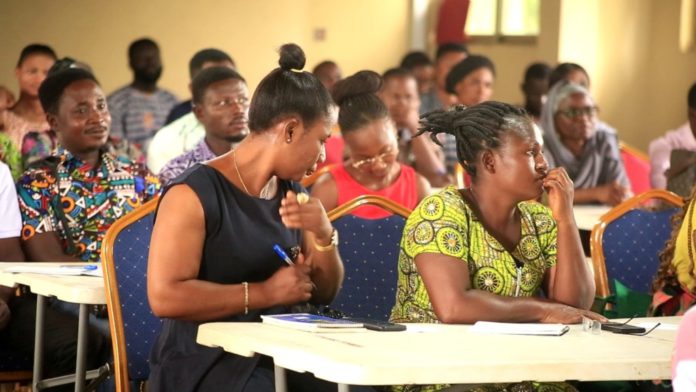Five hundred teachers in the Sekyere East District of the Ashanti Region have completed training sessions focusing on the detection, prevention, control, and management of Neglected Tropical Diseases (NTDs) within their schools.
Hailing from various communities, these teachers underwent comprehensive training covering the signs, symptoms, and appropriate procedures for handling NTD cases in the district.
2023 saw the district grappling with 2,471 cases of scabies, 22 cases of lymphatic filariasis, 55 cases of yaws, and 5 cases of leprosy. Tragically, 7 children lost their lives due to rabies cases.
Health officials highlight that every district in Ghana records at least two NTDs, contributing to the overall burden of 14 tropical diseases nationwide.
The term ‘neglected’ is aptly applied, as these diseases disproportionately impact underserved and marginalized populations with limited access to basic services and political influence. This leads to their neglect in both domestic and global health agendas, in terms of political prioritization and resource allocation.
Neglected tropical diseases, encompassing twenty viral, parasitic, and bacterial conditions, primarily afflict over one billion people, mainly among the world’s most marginalized communities.
Dr. Justice Ofori Amoah, the District Director of Health Services, underscores the significance of the teacher training initiative as a key intervention.
He emphasizes that if teachers can identify diseases and know the appropriate facilities to refer cases, it will significantly contribute to reducing the prevalence of NTDs.
Dr. Amoah notes that some students have discontinued their education due to the stigma associated with these diseases and the societal challenges they face.
He mentioned that there is a mutual transmission of infections between students and teachers. Hence, it is advisable to provide treatment to both teachers and students.
“The students do infect some of the teachers and vice versa. It is good to treat both teachers and students,” he said.
Priscilla Opoku, a teacher at Effiduase D/A 2 JHS, expressed her newfound awareness of the stages and signs of diseases and emphasized the importance of collaborating closely with the health directorate to manage any suspected cases.
“When we encounter any child with these diseases, we should handle the matter discreetly without involving any third party. Instead, we should privately address the issue and take them to the health directorate to find a solution,” Priscilla stated.
Asare Joseph believes that they will share the knowledge gained to help community members recognize the importance of promptly visiting health facilities when suspecting any cases.
He mentioned that through the training, he has learned that diseases previously considered incurable or without medication actually have treatment options. This revelation serves as an eye-opener for them.
The 500 teachers selected across the district underwent training in batches, and the district health directorate anticipates that their efforts and understanding of the diseases will contribute to combating the menace.
READ ALSO:

